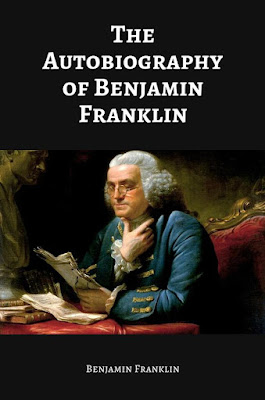
Introduction:
"The Autobiography of Benjamin Franklin" is an influential literary work that offers readers a unique glimpse into the life and mind of one of America's founding fathers. In this detailed book summary, we will delve into the key themes and events that shaped Benjamin Franklin's life, as he recounts his personal journey of self-improvement, intellectual growth, and dedication to the principles of virtue and industry.
Part 1: Early Life and Education
Franklin begins his autobiography by providing an account of his humble beginnings in Boston, Massachusetts. Born into a modest family, Franklin describes his early years as an apprentice to his printer brother. He recounts his love for reading and his relentless pursuit of knowledge, which led him to establish the first subscription library in America, the Library Company of Philadelphia.
Part 2: The Path to Success
Franklin's relentless ambition and industrious nature propelled him to seek new opportunities. He shares his decision to leave Boston and start afresh in Philadelphia, where he eventually became a successful printer and publisher. Franklin's hard work and innovative ideas earned him respect and recognition in the community, and he became involved in various civic and social initiatives.
Part 3: The Pursuit of Virtue and Self-Improvement
One of the central themes of Franklin's autobiography is his commitment to self-improvement and the cultivation of moral virtues. He outlines his thirteen virtues, including temperance, silence, and industry, which he diligently practiced and monitored throughout his life. Franklin's dedication to self-discipline and self-reflection serves as a guiding principle for readers seeking personal growth.
Part 4: Scientific Endeavors and Philanthropy
Franklin was not only a successful businessman but also a renowned scientist and inventor. He recounts his experiments with electricity, including his famous kite experiment, which demonstrated the connection between lightning and electricity. Additionally, Franklin's contributions to the fields of meteorology, medicine, and public health underscore his commitment to scientific inquiry and public welfare.
Part 5: Public Service and Statesmanship
Franklin's autobiography highlights his extensive involvement in public service and politics. He details his contributions to the formation of the United States, including his role in drafting the Declaration of Independence and his diplomatic missions to Europe. Franklin's diplomatic skills and astute political insights solidified his status as one of America's most respected statesmen.
Part 6: Reflections on Life and Legacy
In the final sections of his autobiography, Franklin reflects on his accomplishments and offers advice to future generations. He emphasizes the importance of hard work, frugality, and integrity in achieving success and happiness. Franklin's wisdom and humility shine through as he encourages readers to lead purposeful lives and contribute to the betterment of society.
Conclusion:
"The Autobiography of Benjamin Franklin" is a remarkable testament to the power of determination, intellect, and self-improvement. Through his life story, Franklin inspires readers to embrace curiosity, pursue knowledge, and strive for personal growth. His unwavering commitment to virtue, scientific inquiry, and public service continues to resonate and serves as a timeless source of inspiration for individuals seeking to leave a lasting impact on the world.
